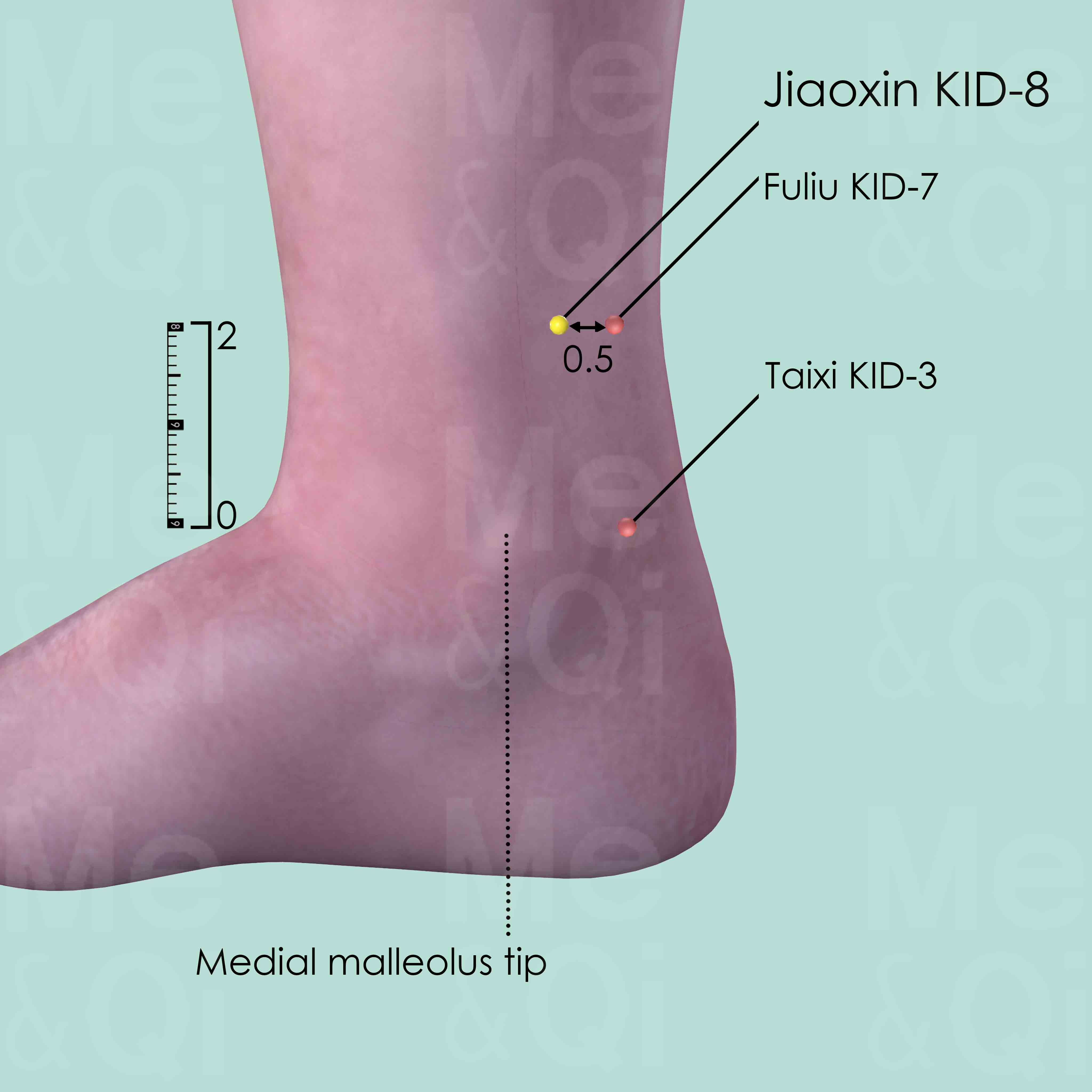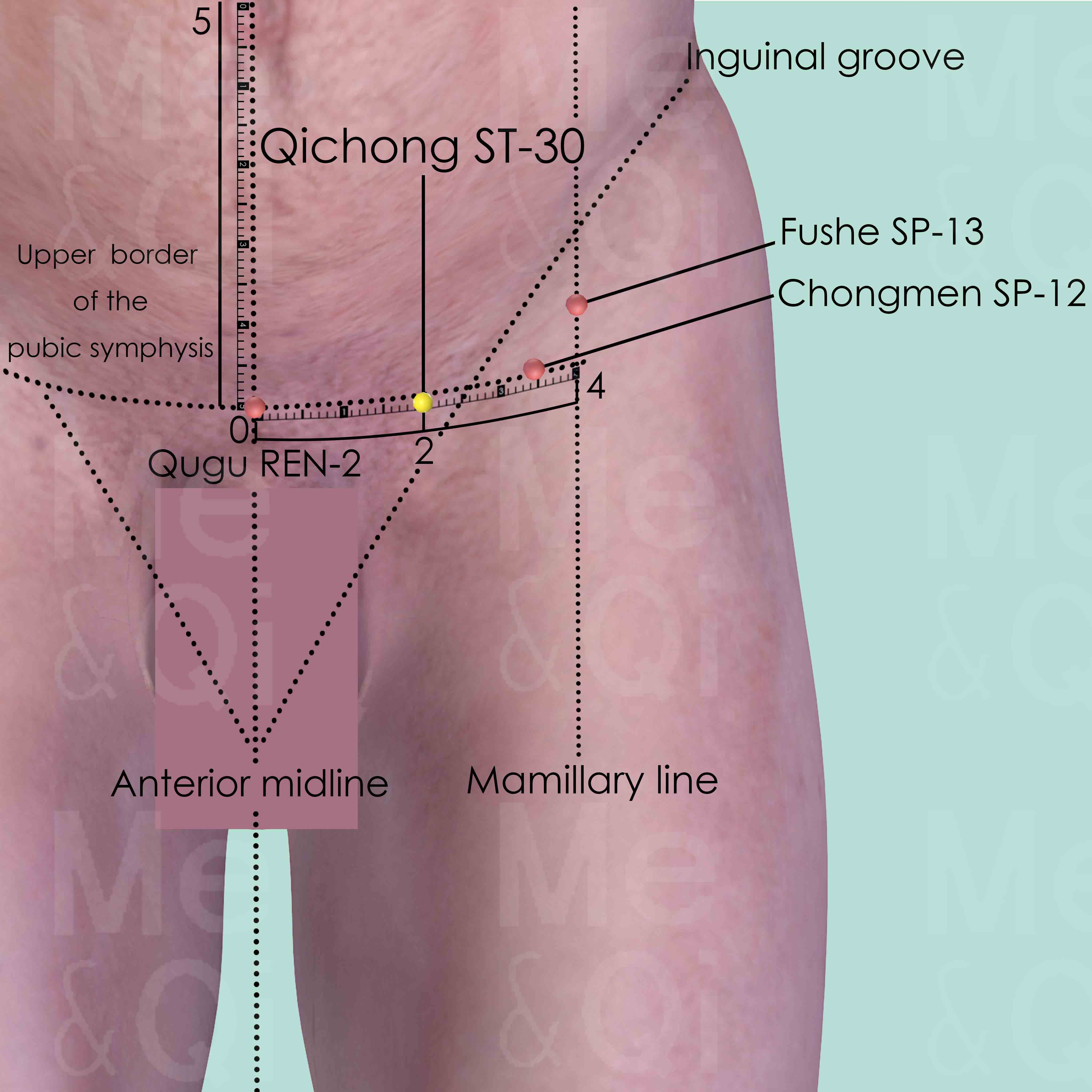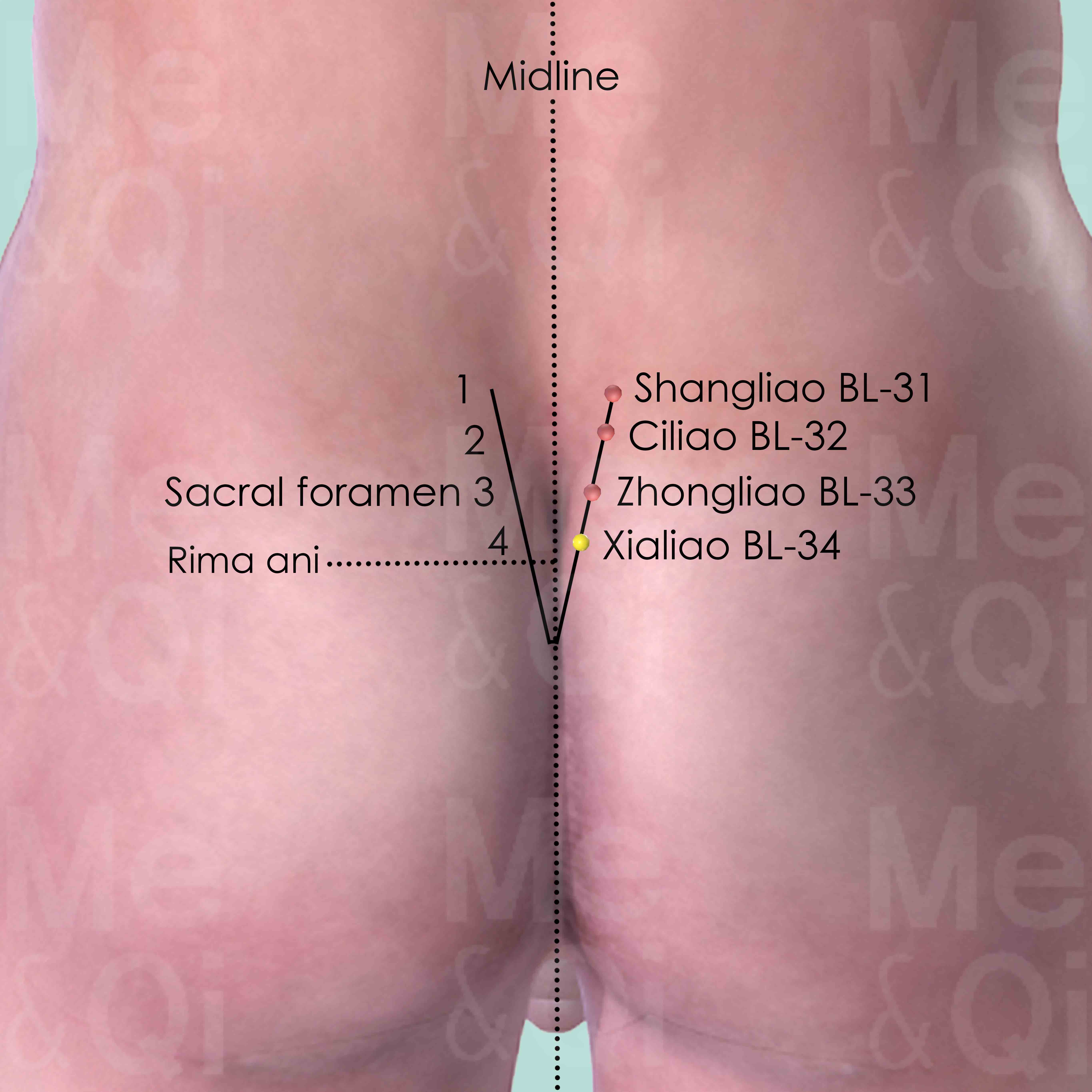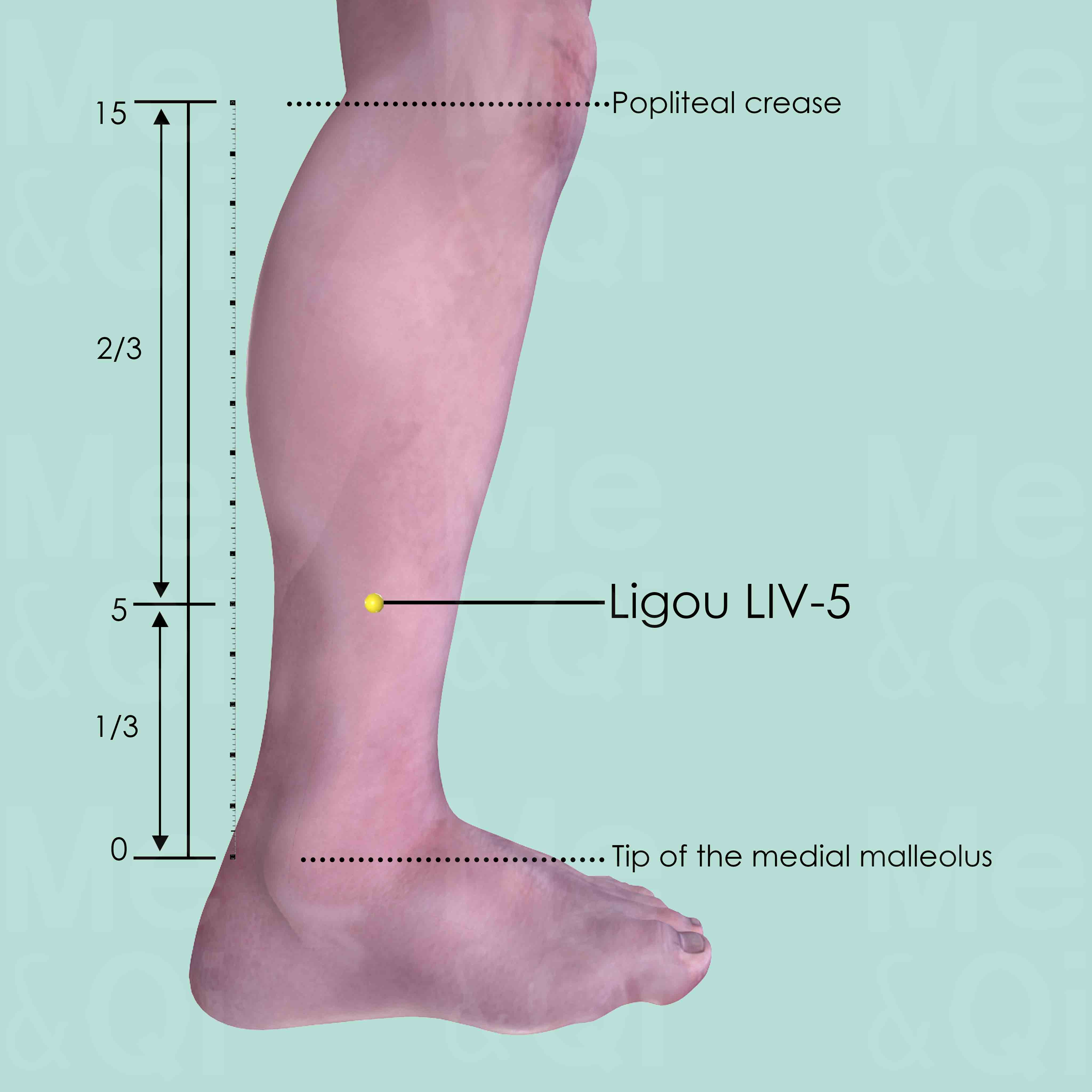Testicular Painaccording to TCM
Symptom family: Genital Pain and Discomfort
Did you mean? Genital Pain
What is Testicular Pain?
Testicular pain refers to discomfort or pain in one or both testicles. The pain can vary in severity and nature, being either sharp and acute or dull and aching. This symptom can stem from various causes, ranging from minor injuries or infections to more serious conditions like testicular torsion or cancer.
Timely diagnosis is crucial, as some underlying causes of testicular pain can have significant health implications. The symptom can significantly impact an individual’s quality of life, making effective treatment a priority.
How Does TCM View Testicular Pain?
Traditional Chinese Medicine (TCM) offers a unique perspective on testicular pain. Unlike Western medicine, which typically focuses on the anatomical and physiological aspects of the symptom, TCM considers testicular pain as an indicator of underlying imbalances in the body’s natural energy systems.
TCM practitioners look at the symptom in the context of Qi (vital energy), Blood, and organ system disharmonies. Identifying the specific pattern of disharmony is crucial in TCM to effectively address the root cause of the pain.
Root Causes of Testicular Pain in TCM
In TCM, testicular pain is often associated with specific patterns of disharmony. One such pattern is Qi Stagnation, particularly in the Small Intestine, which can manifest as testicular pain accompanied by lower abdominal discomfort and bloating.
Another pattern is Cold in the Liver Channel, which can lead to testicular pain along with symptoms like chills and cold extremities. These patterns illustrate how TCM delves into the systemic imbalances causing testicular pain, guiding the approach to treatment.
Explore below more details about what might cause Testicular pain according to TCM.
- By Syndrome
- By Organ
- Qi Stagnation
- Cold
- Small Intestine
- Liver
Qi Stagnation
Qi Stagnation in TCM is like having a traffic jam in your body's energy system. Qi, the vital life force that flows through your body, is supposed to move smoothly to maintain health and balance. But with Qi Stagnation, this flow gets blocked or slowed down, like cars stuck on a highway. This can lead to symptoms like feeling stressed, emotional mood swings, and physical discomfort, often described as a feeling of fullness or tightness, especially in the chest or abdomen. It's as though the body's internal energy circulation is disrupted, causing various issues. TCM sees this as an energy flow problem, different from modern medicine's focus on specific physiological processes.... see more
Qi Stagnation Patterns That Can Lead to Testicular Pain
| Pattern Name | Relevant Symptoms | Relevant Formulas |
|---|---|---|
| Small Intestine Qi Pain | Testicular pain, Lower abdominal twisting pain, Abdominal distention, Abdominal pain worsened by pressure, Borborygmi, Excessive gas and flatulence, Abdominal pain relieved by flatulence... see more | Chai Hu Shu Gan San |
Cold
In TCM "Cold" as a pattern of disharmony refers to a specific type of imbalance within the body's systems, often linked to a deficiency or weakness. It's not about feeling physically cold or having a common cold, but rather a metaphorical description of certain symptoms and underlying conditions. When a TCM practitioner says someone suffers from "Cold," it usually implies that the body's Yang energy, which is warm and active, is insufficient or overpowered by Yin energy, which is cool and passive. Symptoms of Cold in TCM can include a general feeling of coldness, cold limbs, pale complexion, low energy, slow metabolism, and a preference for warmth. ... see more
Cold Patterns That Can Lead to Testicular Pain
| Pattern Name | Relevant Symptoms | Relevant Formulas |
|---|---|---|
| Stagnation of Cold in the Liver Channel | Testicular pain, Hypochondrial fullness with warmth relief, Scrotal contraction, Vertical headaches, Chills, Cold extremities, Vomiting clear liquid, Vaginal atrophy... see more | Nuan Gan Jian |
Small Intestine
In TCM the Small Intestine plays a critical role in receiving partially digested food from the Stomach and further separating the clear from the turbid, essentially distinguishing nutrients from waste. This process is vital for proper absorption and assimilation of food. The Small Intestine is also associated with clarity of judgment and decision-making. When it malfunctions or is imbalanced in TCM, it can lead to digestive issues such as abdominal pain, bloating, poor appetite, or irregular bowel movements. Additionally, a malfunctioning Small Intestine may manifest as mental confusion or difficulty in making decisions, reflecting its role in discernment and clarity in both physical and mental realms. ... see more
Small Intestine Patterns That Can Lead to Testicular Pain
| Pattern Name | Relevant Symptoms | Relevant Formulas |
|---|---|---|
| Small Intestine Qi Pain | Testicular pain, Lower abdominal twisting pain, Abdominal distention, Abdominal pain worsened by pressure, Borborygmi, Excessive gas and flatulence, Abdominal pain relieved by flatulence... see more | Chai Hu Shu Gan San |
Liver
In TCM the Liver is viewed as the organ responsible for the smooth flow of Qi, Blood, and emotions throughout the body. It plays a key role in regulating mood, storing blood, supporting digestion, and ensuring the health of tendons and eyes. When the Liver malfunctions or is imbalanced in TCM, it can lead to a range of issues such as irritability, mood swings, menstrual irregularities, eye problems, and muscular stiffness or pain. A malfunctioning Liver in TCM reflects not only physical disturbances but also emotional and mental disharmony, emphasizing the holistic approach of TCM in addressing health and wellness.... see more
Liver Patterns That Can Lead to Testicular Pain
| Pattern Name | Relevant Symptoms | Relevant Formulas |
|---|---|---|
| Stagnation of Cold in the Liver Channel | Testicular pain, Hypochondrial fullness with warmth relief, Scrotal contraction, Vertical headaches, Chills, Cold extremities, Vomiting clear liquid, Vaginal atrophy... see more | Nuan Gan Jian |
TCM Herbal Formulas for Testicular Pain
TCM employs a range of formulas and herbs to address testicular pain. For Qi Stagnation in the Small Intestine, Chai Hu Shu Gan San, containing Bupleurum Roots, is commonly used to promote Qi movement.
In cases of Cold in the Liver Channel, Nuan Gan Jian, with Fennel seeds, is recommended to warm the Interior and expel Cold. These formulas are selected based on the specific TCM diagnosis, emphasizing a personalized approach to treatment.
Explore below some TCM herbal formulas used to address testicular pain, organized by cause and by formula type.
- By Cause
- By Formula Type
- Qi Stagnation
- Cold
- Formulas that promote qi movement
Top Formula for Qi Stagnation:
Chai Hu Shu Gan San
Suitable for Qi Stagnation patterns that may cause testicular pain, such as Small Intestine Qi Pain
Learn moreTop Formula for Cold:
Nuan Gan Jian
Suitable for Cold patterns that may cause testicular pain, such as Stagnation of Cold in the Liver Channel
Learn moreFormulas that promote Qi movement
These formulas are suitable for some testicular pain-causing patterns like Small Intestine Qi Pain.
One such formula is Chai Hu Shu Gan San, with bupleurum root as a key herb.
Other formulas of this category are listed in the table below.
All "formulas that promote qi movement" recommended for testicular pain
| Formula | Patterns Suitable For (if applicable) |
|---|---|
| Chai Hu Shu Gan San | Small Intestine Qi Pain |
| Nuan Gan Jian | Stagnation of Cold in the Liver Channel |
Acupoints for Testicular Pain
Acupuncture is an integral part of TCM treatment for testicular pain. Acupoints like Jiaoxin KID-8 in the Kidney Channel and Qichong ST-30 in the Stomach Channel are targeted for their actions in invigorating Blood and Qi and resolving Dampness.
Xialiao BL-34 in the Bladder Channel and Ligou LIV-5 in the Liver Channel are also utilized for their effectiveness in regulating the Lower Burner and clearing Damp-Heat from the genitourinary system. These acupoints are selected to align with the specific disharmony causing testicular pain, showcasing TCM’s holistic approach to symptom management.
Explore below some acupoints used to address testicular pain, organized by meridian.
- By Meridian
- Kidney Channel
- Stomach Channel
- Bladder Channel
- Liver Channel

Jiaoxin KID-8
2 cun above Taixi KID-3, 0.5 cun anterior to Fuliu KID-7, posterior to the medial border of tibia.

Qichong ST-30
5 cun below the umbilicus, 2 cun lateral to the anterior midline, superior to the inguinal groove, on the medial side of the femoral artery, nerve and vein.

Xialiao BL-34
In the 4th posterior sacral foramen, between the posterior superior iliac spine and the midline.

Ligou LIV-5
5 cun above the tip of the medial malleolus, on the medial aspect and posterior to the medial crest of the tibia.
